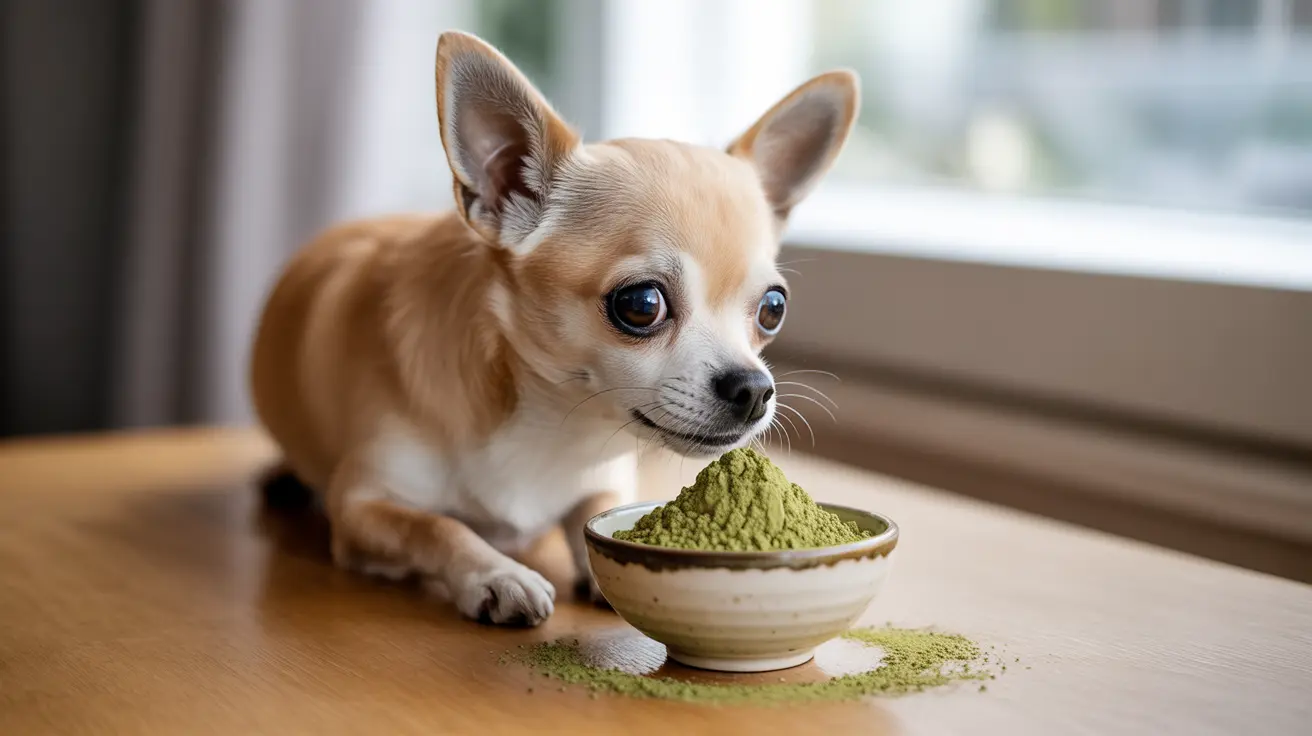As matcha's popularity continues to soar among health-conscious humans, many pet owners wonder about sharing this vibrant green tea powder with their furry friends. However, the answer to whether dogs can have matcha isn't as straightforward as you might think, and understanding the risks is crucial for your pet's safety.
While matcha offers numerous health benefits for humans, its effects on dogs can be concerning and potentially dangerous. Let's explore why veterinarians generally advise against giving matcha to dogs and what you need to know if your pet accidentally consumes it.
Understanding Matcha and Its Components
Matcha is a finely ground powder made from specially grown and processed green tea leaves. Unlike regular green tea, matcha contains the entire leaf, making it significantly more potent in both beneficial and potentially harmful compounds.
The key components in matcha that affect dogs include:
- Caffeine (higher concentrations than regular green tea)
- Theobromine (similar to what's found in chocolate)
- Catechins and other antioxidants
- L-theanine (an amino acid)
Why Matcha Is Dangerous for Dogs
Dogs process caffeine and related compounds differently than humans do. Their bodies are much more sensitive to these substances, making matcha a potentially hazardous treat. Even small amounts can cause adverse reactions in some dogs, particularly in smaller breeds or those with existing health conditions.
Risks and Toxic Effects
When dogs consume matcha, they may experience:
- Restlessness and hyperactivity
- Elevated heart rate and blood pressure
- Vomiting and diarrhea
- Tremors or seizures in severe cases
- Potential organ damage with high doses
Signs of Matcha Poisoning in Dogs
If your dog has consumed matcha, watch for these warning signs:
- Excessive thirst and urination
- Rapid breathing
- Muscle tremors
- Unusual agitation or nervousness
- Vomiting or diarrhea
- Racing heart rate
Safe Alternatives to Matcha for Dogs
Instead of matcha, consider these dog-safe options for health benefits:
- Dog-specific antioxidant supplements
- Fresh fruits like blueberries and cranberries
- Veterinary-approved green supplements
- Commercial dental health treats
What to Do If Your Dog Consumes Matcha
If your dog has ingested matcha, take these immediate steps:
- Determine how much was consumed
- Contact your veterinarian
- Monitor your dog closely
- Keep fresh water available
- Follow professional medical advice
Frequently Asked Questions
Can dogs have matcha? Is it safe for them?
No, dogs should not have matcha. The high caffeine content and presence of theobromine make it unsafe for canine consumption. Even small amounts can cause adverse reactions in some dogs.
What happens if a dog accidentally ingests matcha? What are the symptoms?
If a dog ingests matcha, they may experience hyperactivity, increased heart rate, restlessness, vomiting, and diarrhea. In severe cases, they might develop tremors or seizures. Symptoms typically appear within 30 minutes to 2 hours after consumption.
How much matcha is toxic to dogs? Is the risk different for small breeds?
The toxic dose of caffeine for dogs is approximately 63 mg per pound of body weight, but adverse effects can occur at much lower doses. Small breeds are at higher risk due to their size, and even small amounts of matcha can cause significant reactions.
Can matcha offer any health benefits for dogs, like antioxidants?
While matcha contains beneficial antioxidants, the risks of caffeine toxicity far outweigh any potential benefits. There are many safer ways to provide antioxidants to dogs through specialized pet supplements and dog-safe fruits.
What should I do if my dog has matcha poisoning? How do I treat it at home or know when to contact a vet?
If you suspect matcha poisoning, contact your veterinarian immediately. Don't attempt home treatment without professional guidance. Watch for symptoms and keep your dog hydrated while awaiting veterinary advice. Any signs of severe reaction warrant emergency veterinary care.
Conclusion
While matcha offers numerous health benefits for humans, it's not safe for dogs. The risks associated with its caffeine and theobromine content make it a substance best kept away from our canine companions. Instead, focus on providing your dog with veterinary-approved treats and supplements designed specifically for their unique nutritional needs.






